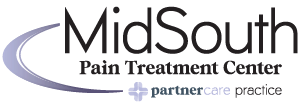Have you had to visit a pain treatment center for your back pain? If you have lower back pain, you're not alone. About 80 percent of Americans will deal with this condition at some point during their lives. It has physical, mental, and even financial consequences with annual healthcare spending reaching nearly $90 billion. This health issue is the third leading cause of these expenditures, nationwide.
Often, it resolves itself with no medical intervention, especially if you've just strained a muscle. The injury will trigger an immune response in your body which will then speed healing. Other times, treatment is necessary if you've ruptured a disk or have developed osteoporosis. Back surgery may offer relief from the chronic pain that these health issues may cause.
But what if it fails?
Risks of Back Surgery
The complications associated with surgery apply to any invasive procedure. There are risks involved with anesthesia and your reactions to it. Infections are always a factor from IVs to the wound dressing. That's why this option is typically the last resort except in cases of physical causes like osteoarthritis, abdominal aortic aneurysms, or skeletal irregularities where intervention is necessary.
Specific procedures target various conditions. For example, a discectomy removes a herniated disc that may put pressure on your spine or nerves, causing discomfort and mobility issues. Spinal fusion can help relieve the pain associated with degenerative disc disease. However, none promise a guarantee of a cure or even successful treatment.
Another area of concern with surgery exists post-op during recovery.
Recovery From Back Surgery
It's essential to consider the entire process before opting for back surgery. You should understand its possible effects and what's involved in the long-term. While you may heal from the physical procedure, the recovery to full mobility is long and arduous, carrying other risks. You can expect it to take anywhere from three months to a year or more before you're active again.
Your treatment will likely include physical therapy, follow-up examinations, and various activity restrictions. Until your body has completed recovered, you're still vulnerable from the consequences of a failed back surgery including the debilitating pain that prompted you to seek treatment in the first place.
The Midsouth Pain Treatment Center in Memphis can help.

Pain Treatment Options for Failed Back Surgery
Back pain is an insidious condition. Sometimes, the cause is apparent if you've injured yourself or engaged in repetitive movements that aggravated it. Other times, you may never know. It's essential to remember that what you feel is a symptom instead of a disorder. It is not diagnostic of itself.
Fortunately, you have several options for non-invasive ways to find relief.
Ironically, bed rest is not one. Staying inactive increases your chances of developing dangerous blood clots. It also causes your muscles to atrophy. Ultimately, it will slow recovery instead of speeding it up.
Bear in mind that doctors typically have their patients moving within 24 hours of surgery for a sound reason. Walking and stretching are some of the best ways to stay flexible and take care of your physical and mental well-being.
The latter is vital for your long-term prognosis. It's crucial for your quality of life and independent, pain-free lifestyle, so get moving! The Midsouth Pain Treatment Center in Memphis understands the importance of complete care and individualized solutions.
Ways to Manage Your Pain
The discomfort you feel often results from your body's attempts to heal itself. The inflammatory response can cause symptoms such as:
- Redness
- Swelling
- Warmth at the injury site
- Itching
Their purpose of this function in your body is to allow white blood cells to reach the affected area and create optimal conditions for them to act. They will get rid of damaged cells and any pathogens like bacteria. Your body also releases chemicals like prostaglandins to encourage your blood vessels to dilate and regulate its responses. They can also cause a fever which can weaken disease-causing organisms.
Complications and pain result from the effects of these actions. Swelling, for example, can put pressure on a nearby nerve. That can lead to numbness and restrictions on mobility, and measures that mitigate these reactions can provide welcome relief.
Over-the-counter analgesic medications like ibuprofen and aspirin are non-steroidal anti-inflammatory drugs. They can reduce pain but may also hamper the healing process by slowing your body's attempt to heal an injury or disease. That's why it's essential to find the right balance.
Exercises and stretching are vital for your treatment plan too. However, it's crucial to move in ways that won't increase your discomfort or hurt you. Physical therapy and behavioral modifications can teach you ways to avoid these risks while promoting the healing process.
Other options also exist such as massage, traction, and prescription medications to complement a complete treatment plan that fits your needs and expectations. It all begins with an email or phone call.

Visiting Your Local MidSouth Pain Treatment Center
The team at Midsouth Pain Treatment Center in Memphis is here to help, and most importantly, listen to your concerns. We understand that it's essential to focus on your entire well-being as you heal. Find out about some of the non-invasive options that can speed your recovery and return to an active lifestyle. The best ways to manage it are not necessarily what you think may work. We have the information you need to make informed decisions about your health.
With six conveniently located pain clinics in Memphis (Cordova and Germantown), Southaven, Oxford, Tupelo, Jackson (TN), you don't suffer in silence. Contact our office today at (866) 707-1942.


